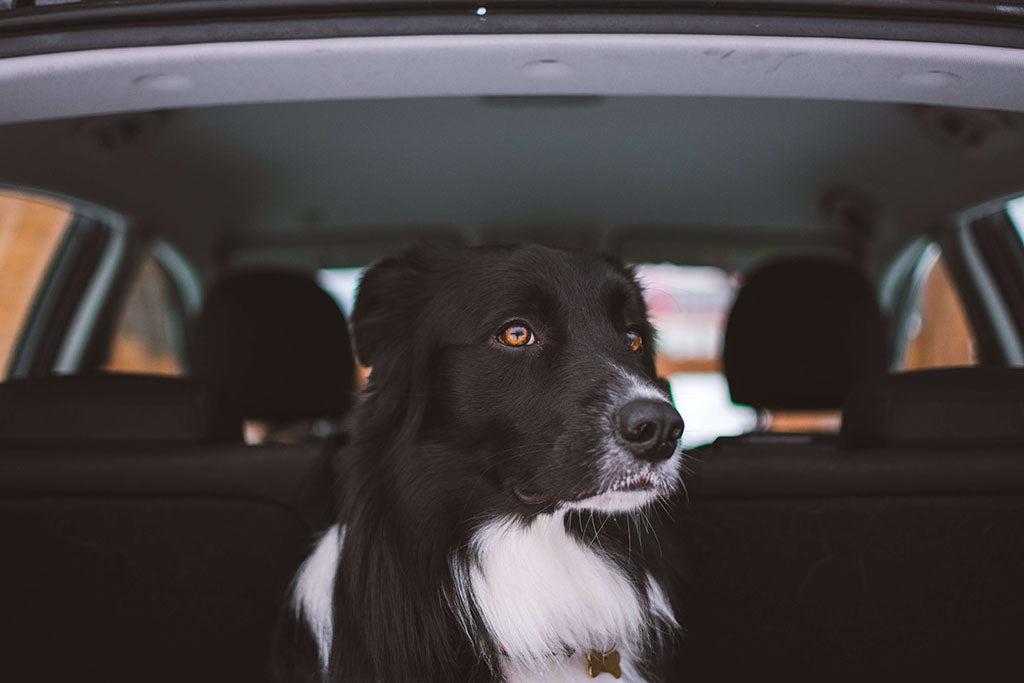In this blog, we’ll learn how to prepare for a hurricane as a dog owner and what you’ll need in the event of a natural disaster of this kind to keep them safe. We’ll also discover whether dogs can sense hurricanes.
A Dog Owner’s Hurricane Preparation Guide

Natural disasters are becoming more common, from wildfires in California, to hurricanes in Florida. They are devastating for everybody in these areas; including your pets. If you know you live in a state or a land area that is susceptible to hurricanes, here’s how to prepare to protect the safety of your animal during the storm.
Plan Ahead
You know hurricanes can occur in your area, so you need to have emergency plans in place in advance of a natural disaster not only for the humans that share your home, but your four-legged friends too.
Whether you choose to evacuate or stay, an emergency kit should be pre-packed for your dog. This should include:
- Three days’ worth of fresh water and food stored it air-tight containers
- Bowls
- Pet first aid kit
- Toilet pads, paper towels, and poop bags
- Contact information for their veterinarian and the nearest emergency vet
- A leash (and a collar with ID tags, if they don’t wear one all the time in the home)
- Their medical records and any medications they require
It’s also worth placing a ‘rescue alert sticker’ on your front door to notify first responders there are animals inside your property that need evacuating. However, if you are leaving your home with your pet before a storm hits, you should take this down to stop someone from risking their safety to rescue a pet that isn’t there.
You should also think about who is going to be your pet’s designated caregiver if you are unable to reach them in an emergency – this should be someone you trust.
If you are ordered to evacuate, you should always take your pet with you.

Make Them Identifiable
If you know a storm is due, keep your collar and ID tags on your dog that include your contact information and any important medical information.
You should also microchip your dog, as this contains an ID number that states their owner’s details that a vet or a shelter can look up if they come into their care.
Keep their microchip information up to date – if you become separated in a disaster this will enhance the chances of you being reunited.
Be Aware Of Other Indirect Risks
Heavy rains and floods heighten the risk of illnesses like heartworm and leptospirosis. This is another reason why it’s essential your dog is consistently kept up to date on their vaccinations.
Don’t allow your dog to drink flood waters, as these will often be contaminated with parasites and dangerous bacteria.
Once the storm is passed, check your dog for any changes in behavior or health status. From obvious physical differences (perhaps wounds or limps, vomiting or diarrhea), to temperamental changes (like their energy levels or their interest in food). If you’re concerned about your dog’s well-being, check in with a vet as soon as possible. If you’re in a relief center, sometimes veterinarians are deployed to support pets in these affected, so ask the folks in charge if veterinary care is available.
Preparation is key when you live in vulnerable areas and states. Check-in with your family’s and pup’s emergency kit regularly so you can make sure food is in date, water is fresh and their first aid kit is properly stocked.

Can Dogs Sense Hurricanes?
Yes. Dogs have a powerful sense of smell (up to 10,000 times more acute than ours). When there is lightning and higher humidity, the scent of the air changes; it becomes more intense so no matter what the weather is doing, your dog will most likely know it’s changing before you do.
They can also hear much better than we can, so will be able to hear things like rumbly thunder before it reaches our ears as well.
Another thing that can help a dog sense a change in the weather is barometric pressure and static electricity; usually common symptoms of a hurricane. Your dog is also able to feel these changes in the atmosphere.
Sources
Author Racine, Elizabeth DVM “Hurricane Preparedness for Dog Owners” American Kennel Club, Sept 28. 2022 https://www.akc.org/expert-advice/health/hurricane-preparedness-dog-owners/
Author Mansoor, Fatima “Can Dogs Sense A Hurricane?” Wag Walking, Jun 26. 2018 https://www.akc.org/expert-advice/health/hurricane-preparedness-dog-owners/
 S
S



